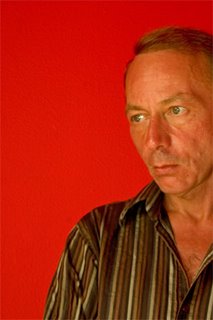 The two novels I took with me to read in Guatemala could not have been more different: Michel Houellebecq's Platform and Carlos Ruiz Zafón's La Sombra del Viento (The Shadow of the Wind). It strikes me now that the strengths of each of these best-sellers are very much the weakness of the other.
The two novels I took with me to read in Guatemala could not have been more different: Michel Houellebecq's Platform and Carlos Ruiz Zafón's La Sombra del Viento (The Shadow of the Wind). It strikes me now that the strengths of each of these best-sellers are very much the weakness of the other.More on Zafón another day; suffice to say that the higher expectations I had of his talent as a writer were not entirely met. Houellebecq on the other hand, surprised me. Platform is a novel replete with startling thoughts, many of them indeed worryingly under-cooked a la mode francaise, but by no means as half-baked as some of his critics have insinuated.
The novel fully deserves most, if not all, of the sharp adjectives thrown at it: misanthropic, reactionary, provocative, obscene, fascistic, pornographic. It's also very witty, and a far more substantial book than I had anticipated when I first opened it on the flight to Houston.
Mario Vargas Llosa once described Houellebeq as "insolent", clearly intending this as a mark of his admiration for the Frenchman's work. It's insistent ambiguity was especially appealing to me. Others (in particular those with fixed template opinions) might dismiss this as dangerous tergiversation, but when worked into a topic dominated by hardened, polarised positions, ambiguity can be a very useful solvent.
A unnamed Dutch academic was recently quoted as saying that Houllebecq's USP is perhaps his willingness to reveal the vile 20% of himself that others generally keep under wraps. Yet it's undoubtedly his position on Islam that has earned him the greatest notoriety. "La religion le plus con," he called it during a TV interview on the promotion circuit.
In Platform he disingenuously inserts secondary characters at key moments solely in order to express the kind of extreme views that even his jaded narrative namesake stops short of. Two of these detractors of Islam are themselves Arabs, and their critiques are not especially sophisticated to say the least:
"The problem with Muslims, he told me, was that the paradise promised by the prophet already existed here on earth. To gain admission there was absolutely no need to fulfill the seven duties of a Muslim, nor to engage in holy war; all you had to do was pay a couple of dollars...the violence of some of them was no more than a form of impotent jealously."
"Islam could only have been born in a stupid desert, among filthy Bedouins
who had nothing better to do - pardon me - than bugger their camels."
However, beneath the raw prejudice, Houellebecq seems atuned to the threat posed to post-Enlightenment civilisation by a resurgent monotheistic mentality, of which the Islamic fundamentalists are the avant garde of the moment:
"The closer a religion comes to monotheism, the more cruel and inhuman itMichel (the author) clearly also feels pounded from the opposite direction by the pervasive values of his own civilisation − mindlessness also comes in the form of the market, the information society and the culture of consumerism.
becomes; and of all religions, Islam imposes the most radical monotheism. Far
from being an abstraction, as it is sometimes portrayed, the move towards
monotheism is nothing more than a shift towards mindlessness."
"The society in which I live disgusts me; advertising sickens me; computers make me puke."His namesake in the novel feels trapped within a lifestyle he comprehensively rejects:
"I was attached to a delusive existence...caught up in a social system
like insects in a block of amber."
This is a state of affairs that Houellebecq is said to blame firmly on his parents' generation − life in a society constructed by the spiritual veterans of '68 appears futile to him.
His biographer has revealed how, as a child, he feared his father and despised his Bohemian mother, and this sense of disconnection from family life and hence from society as a whole undoubtedly pervades the novel. Michel the narrator denies "ever having felt any sense of solidarity with other human beings" and in the author's own words, "until my death, I will remain an abandoned little child, howling from fear and cold, starved of caresses." The opening paragraph of Platform, in which the narrator blithely reports his father's death, deliberately echoes Camus' L'Etranger.
For most of the book the narrative, such as it is, largely serves to give the central character − and others that he rubs up against − opportunities to express different shades of the author's own core worldview, to explain or demonstrate his Marxist-influenced conception of the sexual market, or to engage in what can only be described as hardcore pornographic sex.
However, a very violent third act is set-up when Michel persuades his accommodating new girlfriend and her energetic boss to set up 'Aphrodite'- themed package holidays. This sex tourism venture seems to be taking off when one of the resorts in Thailand is attacked by Islamic terrorists and many, including Michel's girlfriend, are killed. This fictional climax, written before both 9-11 and the Bali bombing, got its author prosecuted for inciting religious hatred, but subsequent events saw him claiming a degree of vindication.

No comments:
Post a Comment